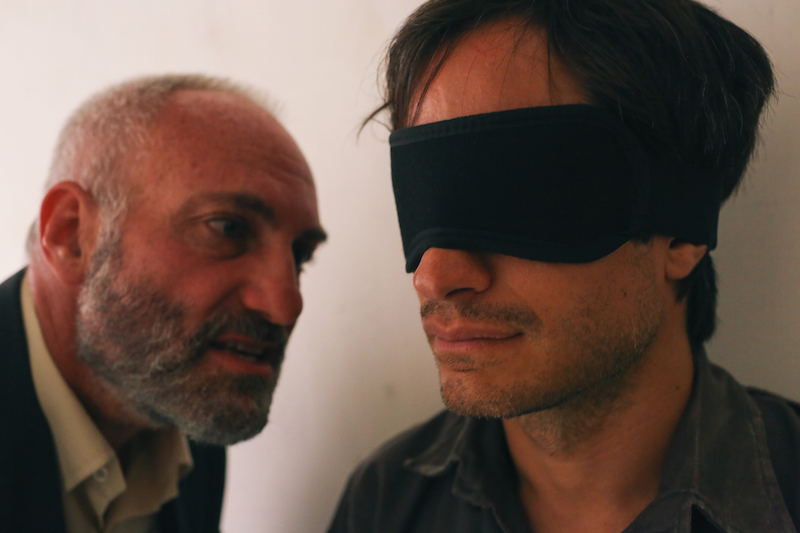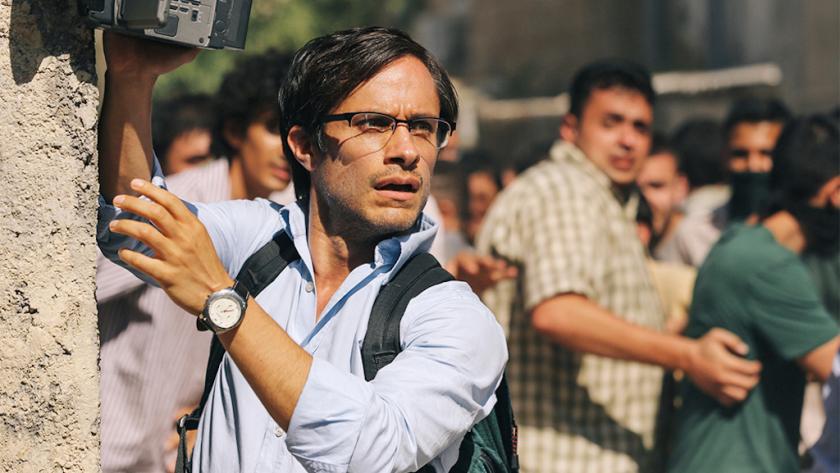Jon Stewart’s Rosewater falls into the micro-genre of films about foreign correspondents struggling with the moral imperative to move from observer to participant, not a question that keeps most viewers up at night. But where Peter Weir’s The Year of Living Dangerously engaged us through a stirring romance and Oliver Stone’s Salvador through a stirring bromance, Stewart takes a more austere approach. He wants to instill passion about an idea – the importance of bearing witness – rather than taking the audience on that X-Factor staple, an emotional journey.
In his native US, Stewart is not just another first-time director. As the host of The Daily Show, he has become, for liberal America at any rate, an icon, a sort of cross between Paul Merton, Jeremy Paxman and Charlie Brooker – part topical comedian, part tough-minded interviewer, and part coruscating media analyst. With so many “serious” US news programs being at best lackluster and at worst propaganda for their corporate owners, Stewart often goes after the stories they should be pursuing but don’t, and skewers the conventional wisdom, a bit like Russell Brand but thankfully with more critical analysis and less self-aggrandisement.
So it’s hardly surprising that the hero of Rosewater is a journalist imprisoned for telling truth to power. Iranian-Canadian reporter and documentary-maker Maziar Bahari (the appealing if not-especially Persian Gael Garcia-Bernal) leaves his comfortable life in London to cover the election in his native Iran for Newsweek. It’s 2009, when a nascent “Green Revolution” looks as though it might unseat the fundamentalist authoritarian Mahmoud Ahmadinejad in favor of the moderate reformer Mir-Hossein Mousavi.
 The usually punctiliously professional and cautious Bahari is swayed into filming a violent crackdown on pro-Mousavi demonstrators protesting the apparently rigged result; and after his report appears on Western media, the security police arrest and imprison him as a spy. He is left in solitary confinement, except for sessions with Javadi, a “specialist” (Kim Bodnia, pictured left with Bernal, who is familiar to British viewers as shambling detective Martin in The Bridge) who tries to get him to confess to this false charge.
The usually punctiliously professional and cautious Bahari is swayed into filming a violent crackdown on pro-Mousavi demonstrators protesting the apparently rigged result; and after his report appears on Western media, the security police arrest and imprison him as a spy. He is left in solitary confinement, except for sessions with Javadi, a “specialist” (Kim Bodnia, pictured left with Bernal, who is familiar to British viewers as shambling detective Martin in The Bridge) who tries to get him to confess to this false charge.
Stewart, who also wrote the script, is at his best depicting the psychological (and occasionally physical) tussle between the two men in this confined space, smartly eschewing simplistic dichotomies for nuance. Both prisoner and jailer had fathers tortured by the dictatorship of the American-backed Shah, but where Javadi’s response is to become rabidly anti-Western, Bahari’s is to hate tyranny itself.
Stewart’s handing of the earlier, big-picture part of the story is less assured. Dramatically effective integration of factual background is often a problem in films based on true stories, and this adapted memoir is no exception. Stewart resorts to unnecessarily tricky structural devices like flash-forwards and flashbacks and slips into telling instead of showing, as when Bahari recalls the earlier imprisonment of his father and sister via a voiceover.
But he shines in conveying how his real subject, the media and its uses, permeates and shapes our contemporary world (you won’t see many movies where Channel 4 correspondent Lindsay Hilsum is not only name-checked but makes a cameo appearance). This provides the film’s most resonant images and ironies, for example when demonstrators hold up a sea of camera phones to document the security forces moving in, while Bahari’s young radical fixer/driver Davood urges the journalist to take a risk by filming the events. “You’ve got a weapon, he says, of Bahari's expensive video camera. "Use it."
The film becomes especially meta when Stewart’s Daily Show colleague Jason Jones, as himself, recreates an interview he conducted with the actual Bahari that was aired on the show. In keeping with Jones’s on-air persona as an egotistical macho reporter who makes any story all about himself (a riff on Doonesbury’s Roland Hedley Jr.), the TDS segment identifies Jones as “Special Espionage Correspondent”. Unfortunately, the Iranian authorities don’t appreciate satire any more than IS does, and the joke caption becomes damning evidence of Bahari’s alleged spying.
On the whole Rosewater is an auspicious debut, but I suspect it has taught Stewart that when it comes to movies, as opposed to journalism, a little blatant emotional manipulation is no bad thing.
Overleaf: watch the trailer for Rosewater













Add comment